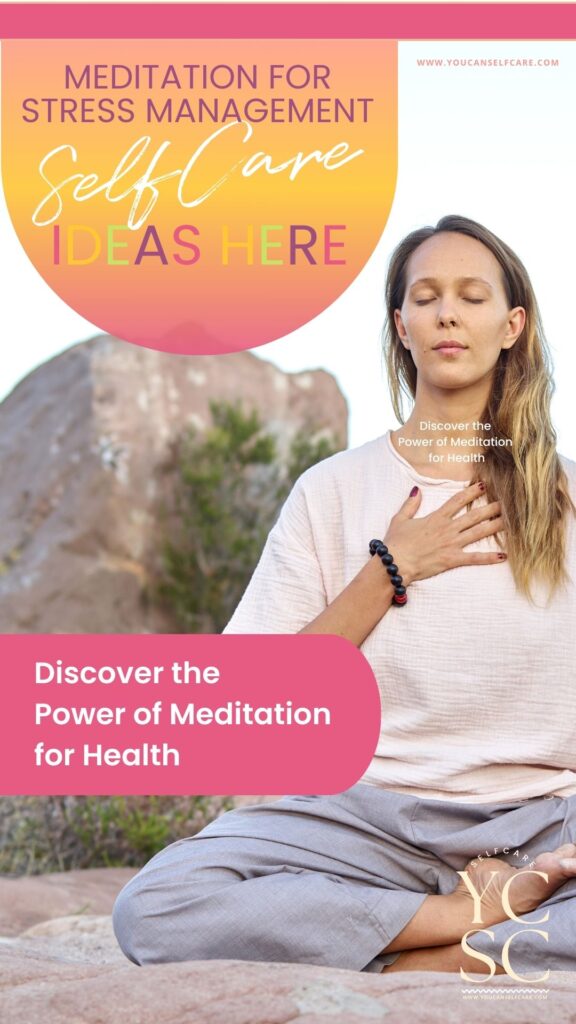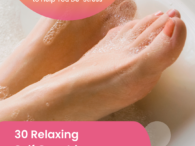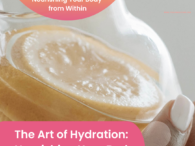Are you feeling overwhelmed and stressed?
Then it's time to explore the power of meditation for health.
Meditation is a powerful tool that can help you reduce stress, improve your emotional wellbeing, and even manage medical conditions.
With different types of meditation, everyday elements, and easy ways to prepare, this practice can easily become a part of your life.
Take the first step and discover the power of meditation for health.
What Is Meditation
Meditation is an ancient practice that can be used to reduce stress, improve mental and physical health, and enhance self-awareness. It's been practiced for thousands of years and has been known to deepen understanding of the spiritual.
It's a type of mind-body medicine that produces a deep relaxation and a tranquil mind. It's also been proven to reduce negative emotions, provide emotional well-being, and even improve sleep quality.
Not only does it bring calmness and peace, but it also helps you cope with stress and become more mindful. And, with the right practice, it can be a useful addition to managing medical conditions like anxiety, depression, and heart disease.
Benefits of Meditation
Developing a regular practice of meditation can help you feel more relaxed, balanced, and at peace. It's a powerful tool for reducing stress and building emotional resilience.
Research has shown that meditation can improve physical and mental health, including reducing symptoms of depression and anxiety, improving sleep quality, and enhancing self-awareness and focus on the present. It can also help manage symptoms of certain medical conditions, such as high blood pressure, tension headaches, irritable bowel syndrome, and asthma.
With regular practice, you can clear information overload, build skills to manage stress, and cultivate patience and tolerance. There are many types of meditation to choose from, such as mindfulness, mantra, or qi gong.
Wherever you are, you can take a few moments to breathe deeply and focus on your breath. So start exploring and discover the power of meditation for yourself.
Meditation and Emotional Well-Being
Practicing meditation regularly can help you feel more relaxed, balanced, and at peace, making it a great tool for reducing stress and improving your emotional well-being. It can help clear information overload, provide a new perspective on stressful situations, build skills to manage stress, and increase imagination, creativity, patience, and tolerance.
Studies have shown that regular meditation can also lower resting heart rate and blood pressure, as well as reduce negative emotions and improve sleep quality.
It can be practiced in many different ways, such as guided meditation, mantra meditation, mindfulness meditation, and qi gong. Make it formal or informal according to your lifestyle, and reap the emotional and physical benefits of meditation.
Meditation and Medical Conditions
Exploring the potential benefits of meditation could help you manage the symptoms of various medical conditions, such as anxiety, asthma, cancer, chronic pain, depression, heart disease, high blood pressure, irritable bowel syndrome, sleep problems, and tension headaches.
Meditation can provide an additional layer of self-care and relaxation to help cope with difficult medical conditions. It can also help you build skills to better manage stress and reduce the negative impact of physical and emotional symptoms.
With regular practice, meditation can be a powerful tool to improve your overall health and wellbeing. By engaging in mindful breathing and focusing on the present moment, you can clear information overload and relax your body and mind.
Try incorporating meditation into your daily routine to experience the potential benefits. You can attend meditation centers, group classes, or practice on your own with meditation apps. Take advantage of this ancient practice to improve your emotional and physical well-being.
Different Types of Meditation
Trying out different types of meditation can be a great way to find what works best for you and your lifestyle. Guided meditation is a great way to relax with mental images of calming places or situations.
Mantra meditation involves silently repeating a calming word or phrase.
Mindfulness meditation focuses on increased awareness and acceptance of the present moment.
Qi gong combines relaxation, movement, and breathing exercises.
Tai chi combines gentle martial arts training with controlled breathing.
All these types of meditation can help reduce stress and cultivate a sense of peace. Use the practice of meditation to help manage symptoms of medical conditions like anxiety and depression.
With an open attitude and comfortable position, meditation can be a great addition to traditional treatments.
Find the type of meditation that works for you and begin to discover the power of meditation for health.
Elements and Everyday Ways to Practice Meditation
Unlocking the potential of meditation in your everyday life can start with focusing on your breath, scanning your body, and letting thoughts pass without judgment. Deep, even-paced breathing helps relax the body and clear the mind of distractions. Becoming aware of your physical sensations can help you accept the present moment.
To get the most out of meditation, it's important to find a quiet setting, a comfortable posture, and an open attitude. You can attend meditation classes or centers, practice on your own, or use meditation apps. You don't have to make it formal; you can incorporate it into your everyday life in whatever way works for you.
With the right attitude, meditation can help you relax, reduce stress, and gain a new perspective on life. Embrace the power of meditation and unlock its potential today!
Preparing for Meditation
To begin your journey of relaxation, find a quiet setting and a comfortable position that works for you. Whether you're sitting, lying down, walking, or doing another activity, make sure you're comfortable. Once you're settled, open your attitude and let thoughts pass without judgment. This will help you focus on the present moment and free your mind from distractions.
To make your meditation formal or informal, adjust it to suit your lifestyle. You can attend a meditation center or group class, or practice on your own. Apps are available to help guide you through the process. Remember to breathe deeply and focus on your breath. Let your body relax and become aware of the sensations.
You're now ready to explore the power of meditation for health.
Making Meditation a Part of Your Life
Making meditation a part of your life can help you relax and cope with stress, improve emotional well-being, and experience a sense of balance. You can start with just a few minutes a day and gradually increase the duration as you become more comfortable with the practice.
You can make meditation formal or informal, depending on your lifestyle. Incorporate it into your everyday activities such as walking, taking a shower, or even doing the dishes. Find a comfortable position, focus on your breath, and let your thoughts pass without judgment.
You'll soon reap the rewards of a calmer, more peaceful mind. With regular practice, meditation can become a habit that improves your overall health and well-being.
Conclusion
Meditation is a powerful tool that can help you improve your overall health and wellbeing. It can help you manage stress, reduce symptoms of medical conditions, and offer a new perspective on life.
Try it today and discover the power of meditation for yourself - you won't regret it!
With a few simple steps, you can make meditation a part of your life and start reaping the many benefits it has to offer.
Get Your Free Printable Guide, "Transform Your Self-Care Routine in 7 Days," and Unlock the Secrets of Health and Happiness. Click Here
Hi! Are you ready for some 'Me-Time'?













